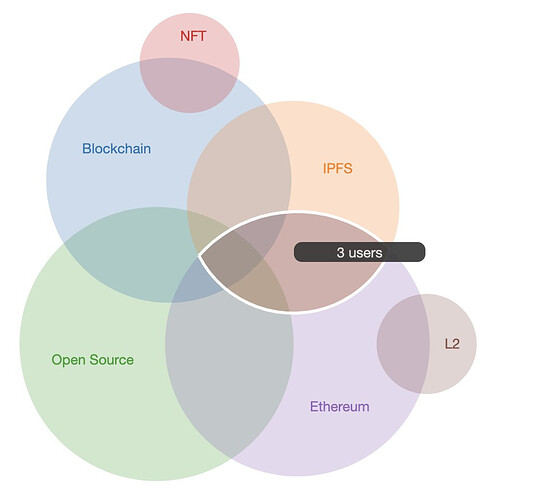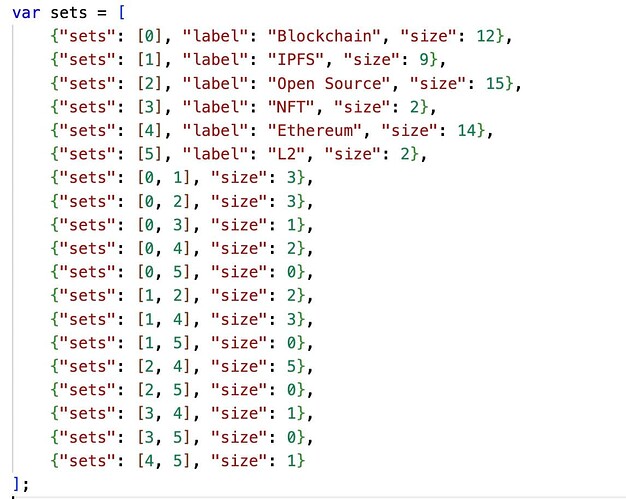How can Gitcoin leverage the lessons learned from its past experiments to address the limitations of the current Quadratic Funding model and refine it for future applications?
Given the multiple cohorts which exist and commit extractive and exploitative attacks on Gitcoin Grants and our Web3 partners, what novel solutions can Gitcoin explore to enhance the security and fairness of the Quadratic Funding model?
In the pursuit of next-generation allocation mechanisms, how can Gitcoin ensure a more representative and pluralistic environment for its Grants Programs and QV governance models?
We present the Q.E.D. (Quadratic Experimentation and Development) program, which aims to answer those questions through the development and implementation of collusion-resistant Quadratic Funding mechanisms for Gitcoin Grants. The project lead for Q.E.D. has developed state-of-the-art collusion-resistant QF mechanisms in collaboration with leaders in the field, and brings to the table an ability to rigorously understand the unique needs of Allo Protocol. Q.E.D.'s aim is to create a more inclusive and democratic funding model that addresses collusion and improves the efficiency and fairness of the funding process, as well as to educate our prospective and current partners about the trade-offs that can be made in their own Allo use-cases.
Proposal
We propose to deliver the following:
- A tailored mathematical framework for understanding QF within Gitcoin’s context.
- Empirical analysis of collusion-resistant mechanisms using Gitcoin Grants data.
- Product roadmap with recommendations for data collection practices and Gitcoin Allo/ Passport feature analysis.
- Series of articles for marketing, educational, and onboarding purposes.
- Bi-weekly updates to the Gitcoin community.
Personnel and Funding
The Q.E.D. project will be led by Joel Miller (that’s me!), a Computer Science PhD student at the University of Illinois, Chicago, who brings a wealth of expertise in algorithmic game theory/mechanism design, algorithmic fairness, and the socio-political aspects of technology. Joel has previously collaborated with Erich and Glen Weyl, the inventor of QF, as the lead author of a paper on collusion-resistant QF. This paper established a flexible framework for understanding collusion in QF and presented a new collusion-resistant mechanism currently utilized in the RadicalxChange web app.
Erich (@erich) has been involved in community-building, research, and tooling efforts related to Quadratic Voting and Funding since 2019 and currently works as a product manager with the Gitcoin Passport workstream. Collaborating closely with Joel, Erich’s contributions will help drive towards actionable product outcomes of the Q.E.D.
Alex (@ale.k) from Public Goods Funding will contribute her expertise as a data analyst with experience in on-chain identity analysis and unique insights into product experimentation design. Alex will offer invaluable support to the Q.E.D. team.
Furthermore, Kevin Olsen (@kevin.olsen), Gitcoin’s VP of Engineering, will serve as the partnership champion to ensure that the Q.E.D. program is executed with academic rigor and technical excellence. Kevin’s extensive experience within Gitcoin’s engineering team will be instrumental in facilitating a strong partnership and enabling seamless integration of proposed changes into Gitcoin’s products. By fostering open communication and collaboration between the Q.E.D. team and Gitcoin’s product and engineering leaders, Kevin’s involvement will help address potential challenges and roadblocks during the implementation process.
The entirety of the budget will go to staffing funding ($9,080 a month for three months, or $27,240 total), which will be allocated to Joel, who will play a crucial role in developing and implementing the collusion-resistant QF mechanisms. $9,080 a month is the exact amount they earned working on the same problem last summer with Glen Weyl. All other costs (e.g. software licenses) will be covered out-of-pocket.
Technical Specification
Here’s a detailed account of our planned methodology. Our goals can be broken into three interrelated components:
- Custom-tailored Mathematical Framework: The Q.E.D. program will develop a micro-economic model describing the QF process (including agent behavior and funding outcomes) and a well-defined set of desiderata for measuring collusion resistance relative to that model. Unlike previous research, which either presented under-specified or general models/definitions of collusion resistance, we aim to create a framework specifically designed to capture Gitcoin’s unique needs and circumstances. This will allow us to reason about QF with clarity and better predict the outcomes of various mechanisms (such as those listed here and here).
- Empirical Analysis: The program will conduct an empirical analysis of collusion-resistant QF mechanisms using real-world Gitcoin Grants data. This analysis will help us understand how these mechanisms behave in the GitCoin ecosystem and develop new techniques for evaluating them. We plan to explore techniques inspired by work on counterfactual fairness, which will allow us to reason about outcomes even in the absence of ground-truth data about coordinated attempts to manipulate results. No additional PII will be kept or maintained through this program and all potentially identifying information will be subject to a 64-bit hash prior to ingestion/transmission.
- Implementing and Developing Collusion-Resistant Measures: Based on the mathematical framework and empirical analysis, the Q.E.D. program will provide practical recommendations for implementing collusion-resistant measures in Gitcoin’s QF product. This includes suggestions for data collection practices, Gitcoin Passport operation, and the actual QF mechanism, ensuring a more robust and secure funding process. Currently, the most promising collusion-resistant mechanism is Connection-Oriented Cluster Match, developed by Joel and Glen Weyl (see section 3.2 here for details). The technical work outlined above will help us adapt that mechanism for the Gitcoin ecosystem. Our work will also explore the development of new mechanisms in addition to this promising initial direction…
Benefits
Funding the initial trial period of the Q.E.D. program offers several key benefits that will positively impact Gitcoin’s community and reinforce its position as a leader in public goods funding. These core benefits include:
- Improved Collusion and Sybil-resistance: By developing and implementing collusion-resistant QF mechanisms, the Q.E.D. program will make the funding process more robust, secure, and resistant to manipulation, ensuring a fair distribution of resources to the projects who show the most grass-roots support among diverse communities.
- Enhanced Trust and Adoption: The introduction of a more equitable and transparent funding model will instill trust among the Gitcoin community members, funders, and stakeholders. This increased trust will lead to greater adoption of the Gitcoin platform and attract more participants to contribute to public goods projects.
- Inclusive and Democratic Funding Model: The Q.E.D. program promotes a more pluralistic QF mechanism that incentivizes cooperation across social differences. This fosters a more inclusive and democratic funding model, resulting in a diverse and vibrant Gitcoin ecosystem that supports a wide array of projects and initiatives.
- Driving Innovation: By allocating resources more effectively and fairly, the Q.E.D. program will help drive innovation within the web3 ecosystem, fueling the development of groundbreaking projects and technologies that contribute to the greater good.
- Collaboration with Researchers and Practitioners: Joel and Erich have close ties to other leading experts in the field of Plurality. While we can’t promise anything from those not directly involved in the Q.E.D. program, these connections will likely allow us to leverage outside expertise to create a more effective and equitable QF mechanism, while also encouraging a culture of open collaboration and intellectual curiosity within the Gitcoin and web3 communities.
Through these benefits, the Q.E.D. program aims to create a more resilient, fair, and economically optimal funding model for Gitcoin Grants. This comprehensive approach will not only address the existing limitations of the QF model but also contribute to the long-term growth and sustainability of the Gitcoin ecosystem.
Drawbacks
While the Q.E.D. program offers several significant benefits, it is essential to consider some drawbacks and challenges that may arise from its implementation:
- Cost Factors: Implementing the Q.E.D. program requires funding to cover staffing costs, which amount to $27,240 in USDC. These costs must be weighed against the potential benefits and long-term impact of the program.
- Data Privacy Concerns: Developing collusion-resistant QF mechanisms may require collecting additional user data, potentially raising privacy concerns among Gitcoin community members. It is crucial to balance the need for data collection with maintaining user privacy and ensuring compliance with relevant regulations. As stated above, no additional PII will be kept or maintained through this program and all potentially identifying information will be subject to a 64-bit hash prior to ingestion/transmission.
- Complexity and Integration Challenges: The Q.E.D. program entails the development of new mathematical frameworks and empirical analyses, which may increase the complexity of Gitcoin’s existing systems. Integrating these new components into the platform may present challenges and require close collaboration with product and engineering leaders. Additionally, barring technical challenges, the choice of whether to integrate our proposal will be left to a future decision.
- Execution Risk: As with any project that involves research and development, there is a risk that the proposed collusion-resistant mechanisms may not deliver the expected results or face unforeseen challenges during the implementation phase. It is essential to monitor progress closely and adjust the approach as needed to ensure the program’s success which is why we will give bi-weekly progress updates to the GitCoin community.
Vote
We invite the Gitcoin community to vote on the implementation of the Q.E.D. program to develop and integrate collusion-resistant QF mechanisms into the Gitcoin Grants platform. Your vote is important to determine the direction and priorities of the Gitcoin ecosystem.
To be clear: a “yes” vote for this project is not a vote to change Gitcoin’s core QF algorithm. It’s a vote to fund R&D aimed at giving Gitcoin a button it could press to change the core QF algorithm.
Voting “Yes”: By voting “yes,” you support the implementation of the Q.E.D. program. This includes allocating the necessary funds for staffing costs ($27,240 in USDC), as well as the commitment to collaborate with leading experts in the field to ensure the program’s success.
Voting “No”: By voting “no,” you indicate that you do not support the implementation of the Q.E.D. program at this time, either due to concerns about costs, potential drawbacks, or other factors. This would mean that the core logic of the current QF mechanism would remain unchanged, and the resources allocated for this proposal would not be utilized for the Q.E.D. program.
To cast your vote and share your opinion, please visit Snapshot (link pending responses from Stewards).


